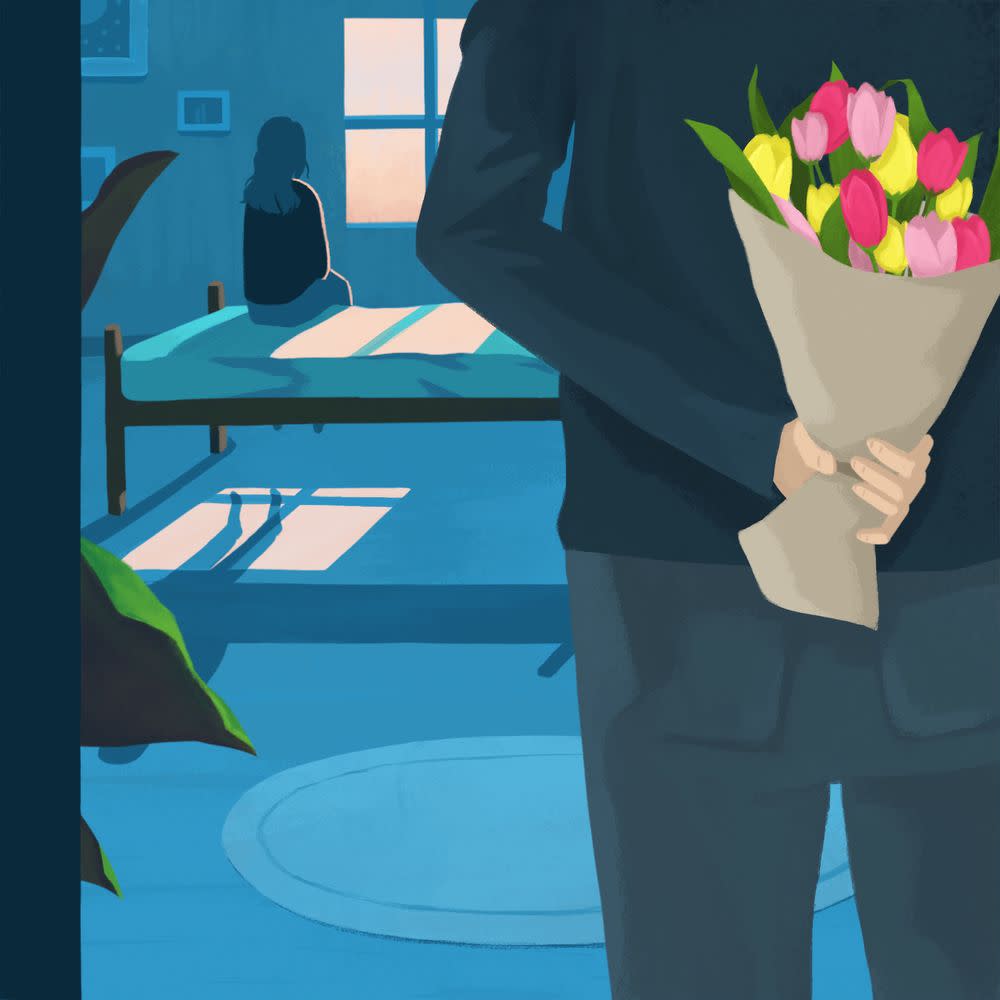How Miscarriage Effects Men, One Husband's Story

We thought we'd made it.
Like more and more couples, my wife and I waited a while before deciding to get pregnant. Married in 2007, both 28, we didn't start trying until our mid-30s.
Granted, our circumstances were anything but trendy. Early in our marriage, I became a low-bottom alcoholic. Upon sobering up in 2011, there were several boxes—employment, housing and, of course, marital—we needed to check before even considering a child.
When we did decide, we were all in. We didn't overcome all that not to follow through on parenthood. Patty, my wife, got pregnant soon after, signifying an unspoken accomplishment: our life reclamation project had beaten her biological clock.
And then, a month later, it suddenly hadn't. Patty had suffered a miscarriage.
Men Feel a Different Grief
What followed was exactly as expected: deep sadness of a sort neither of us had ever experienced. It is a unique sadness, one steeped in mourning for a loved one we never knew, unconstrained by anxiety because the worst had already happened. The melancholy was only magnified by its stagnancy. There were no funeral arrangements to distract us, albeit temporarily, from the gravity of our loss.
We were just two people weeping in our living room. Both stunned, but only one experiencing the worst type of postpartum depression: the kind that doesn't include a baby.
Biologically, men can't experience the full impact of a miscarriage's crushing blow. My wife had a person—a pre-loved darling representing our enduring dedication—growing inside her… and then suddenly didn't. The intra-body severance of life is so deeply gender-specific that, as a man, I can't fully grasp the resulting grief.
RELATED: Emotional Aftermath of Miscarriage
So no, this piece is not about false equivalence. Women bear the brunt of miscarriages through sheer biology. What I can say—and I hope it's a comfort to women who've experienced or fear miscarriage—is that men suffer their own trials following such tragedy.
Let's start by dispelling one misconception: Men don't blame women for miscarriages, period. Patty had lingering thoughts that she may have overexerted herself physically and, by extension, feared I might be harboring such unspoken resentment. No such thought crossed my mind; miscarriages are nobody's fault, and any man deserving of fatherhood knows this.
Despite this, men are burdened with their own unique, equally nonsensical guilt when a partner miscarries. Much of this deals with our sidelined role in pregnancy overall: we can be there for our wives, but can't do much to ease the physical discomfort and emotional stress that carrying a living thing inside you brings.
And when that living thing dies, a man's pregnancy powerlessness becomes that of a bystander watching his beloved go through unimaginable heartache. When Patty miscarried, I wanted to shoulder her grief along with my own… but I couldn't. This need to protect wasn't driven by male dominance, but rather deep, desperate desire to empathize. I was at a loss for not comprehending the full extent of my wife's loss.
Her grief was deeper, which made mine feel shallow by comparison and, ironically, led to shame. I could hold my wife's hand through the God-awful procedure to remove what would have been our son or daughter from her womb, but I would not be subjected to that nightmarish indignity myself. As life partners, we go through as much as we can together; but some hardships are nonetheless suffered in loneliness.
Commitment & Rebirth
Some things are best not to overthink or over-feel. Getting pregnant again following a miscarriage is one of those experiences. A few months later we resumed trying and, once again, conceived shortly thereafter.
Were we fearful of another miscarriage? Of course. We were staring 37 in the face and had already miscarried once. That would concern anyone.
But if anything, the miscarriage had reaffirmed our commitment to becoming parents. For two people who'd postponed parenthood, neither felt "off the hook" by the lost pregnancy. There was no relief in our grief—as terrible as that sounds, I'm sure many have experienced this emotional paradox. We are eternally grateful we did not.
We remained all in on becoming parents, a complete certainty that trumped any apprehensions about another miscarriage. Patty did nothing different this time around, vanquishing any of her lingering, if illogical, guilt over doing anything wrong the first time.
On March 18, 2016, Nicholas Li Dale was born. He never would have existed had his parents not had a miscarriage a few months before he was conceived.
Nicholas' arrival was not a trade-off, nor fate, nor a completed circle. The joy he brings does not erase the grief that came before. But in transforming us from couple to family, Nicholas exemplifies the blessings that can emerge from trauma.
He was worth the wait, and the grief. And though men and women experience miscarriage differently, that fact more than bridges the gender gap.

